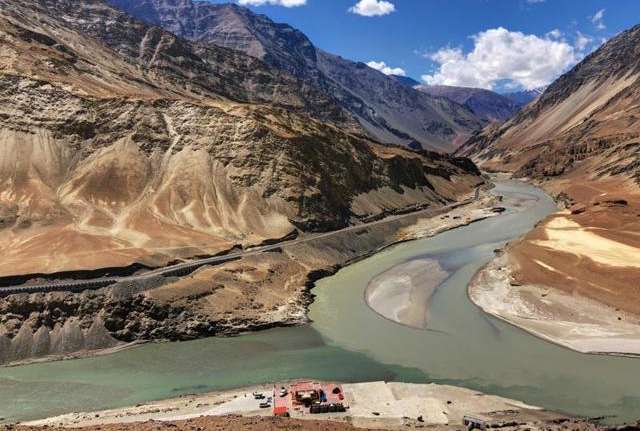India cannot be forced to participate in what it considers “illegal” proceedings at the Permanent Court of Arbitration regarding the Kishenganga and Ratle hydropower projects in Jammu and Kashmir. The Hague-based tribunal ruled that it has the authority to consider the dispute between India and Pakistan on this matter. India has maintained that it will not join the proceedings initiated by Pakistan, as the dispute is already being examined by a neutral expert under the framework of the Indus Waters Treaty. Pakistan’s foreign policy towards India has been disastrous, characterized by consistent denial and shifting goals. The most recent example is Pakistan’s attempt to obstruct the Kishenganga and Ratle Hydroelectric Projects. Although the Indus Water Treaty (IWT) is clearly in Pakistan’s favour, India has consistently honoured it, acting as the bigger brother despite suffering losses. The IWT is the most lenient water-sharing agreement between the two countries globally. Pakistan receives 80percent of the water from the Indus, Jhelum, Chenab, Ravi, Beas, and Sutlej rivers, providing the lower riparian Pakistan with four times the water allocated to India.
The 1960 treaty with the World Bank as a third party, the IWT, establishes a procedure for resolving disputes. Both countries are required to address concerns mutually, and if unresolved, the World Bank intervenes. If the issue remains unresolved, neutral observers can be appointed, followed by arbitration proceedings. However, Pakistan deviated from this process in the cases of the Kishenganga and Ratle projects. Pakistan initially rejected Indian clarifications, requested neutral observers from the World Bank, withdrew that application, and then demanded arbitration proceedings. The World Bank, for reasons known only to them, has granted Pakistan’s request, initiating both neutral observer and arbitration proceedings.
Pakistan’s breach of the IWT prompted India to issue a ninety-day notice for Pakistan to respond. Over the past sixty-two years, India’s experience with the IWT has been bitter, with Pakistan consistently refusing to comply with the treaty’s dispute resolution mechanism. Experts and international panels have often criticised the one-sided nature of the IWT, lacking any rationale. Instead of focusing on its internal problems, Pakistan’s rulers tend to divert attention by adopting a hostile attitude towards India. Pakistan finds itself isolated on the international stage due to terrorism-related concerns, pleading for aid, lacking foreign reserves to import oil, unable to pay international debt interest, and teetering on the brink of collapse. Yet it continues to complain about nonexistent issues. Pakistan’s inability to construct dams or canals to utilise its designated water resources is hindering its development. Meanwhile, India, a rapidly growing economy, urgently requires renewable power to support its progress and uplift its population. Pakistan’s attempts to impede India’s advancement are unnecessary and are holding back the country’s growth.
From the perspective of Jammu, even though the Chenab River traverses the entire Jammu Division, its water cannot be utilised for drinking or irrigation purposes. The excessive utilisation of the Tawi River has resulted in the depletion of its resources, rendering it incapable of meeting the water requirements of Jammu. The entire Kandi belt in Jammu is currently grappling with acute water scarcity, where there is available land but no irrigation source apart from relying on rainfall.
India should actively engage at various levels to counter what it perceives as Pakistan’s false propaganda and to challenge the World Bank’s initiation of illegal arbitrary proceedings. India must assert its position and protect its interests by international treaties. It is legitimate for India to explore all available options and pursue the matter to a favourable resolution. India must allocate all necessary resources to find a way out and avoid being hindered by a failed state. The World Bank should recognise the rationality and hidden motives behind Pakistan’s attempts to impede India. The World Bank should not be complicit in delivering injustice to India.
Trending Now
E-Paper


